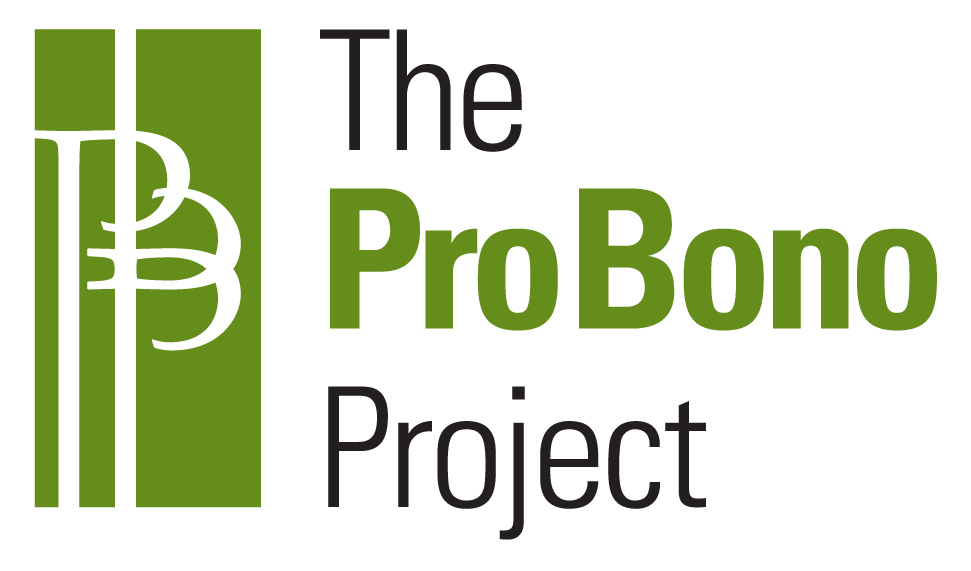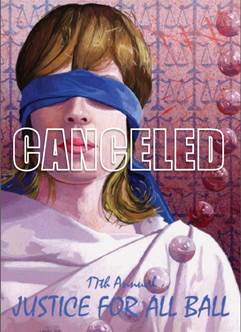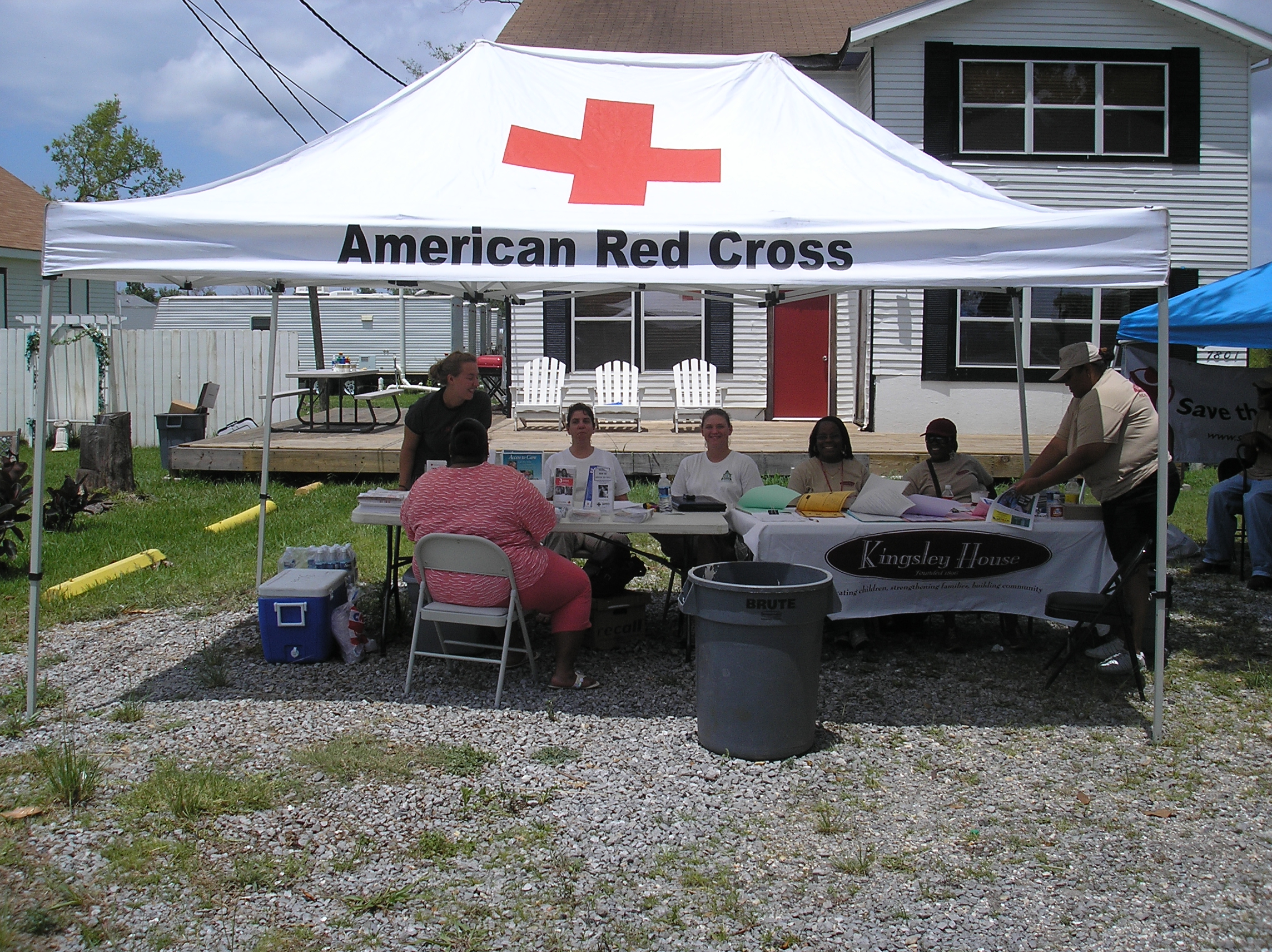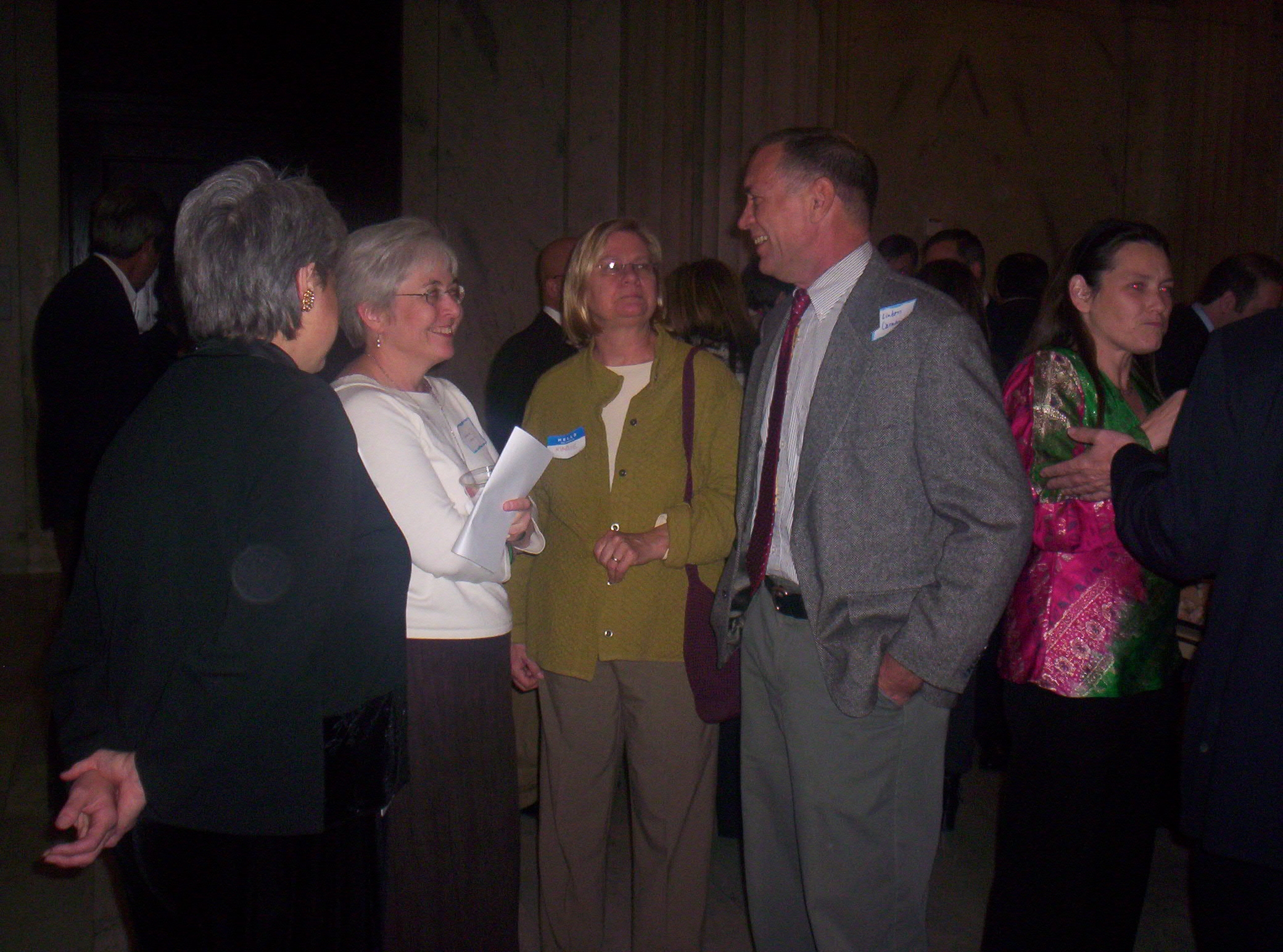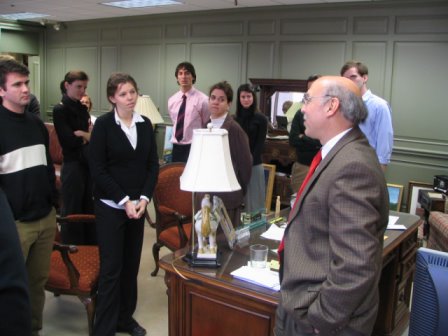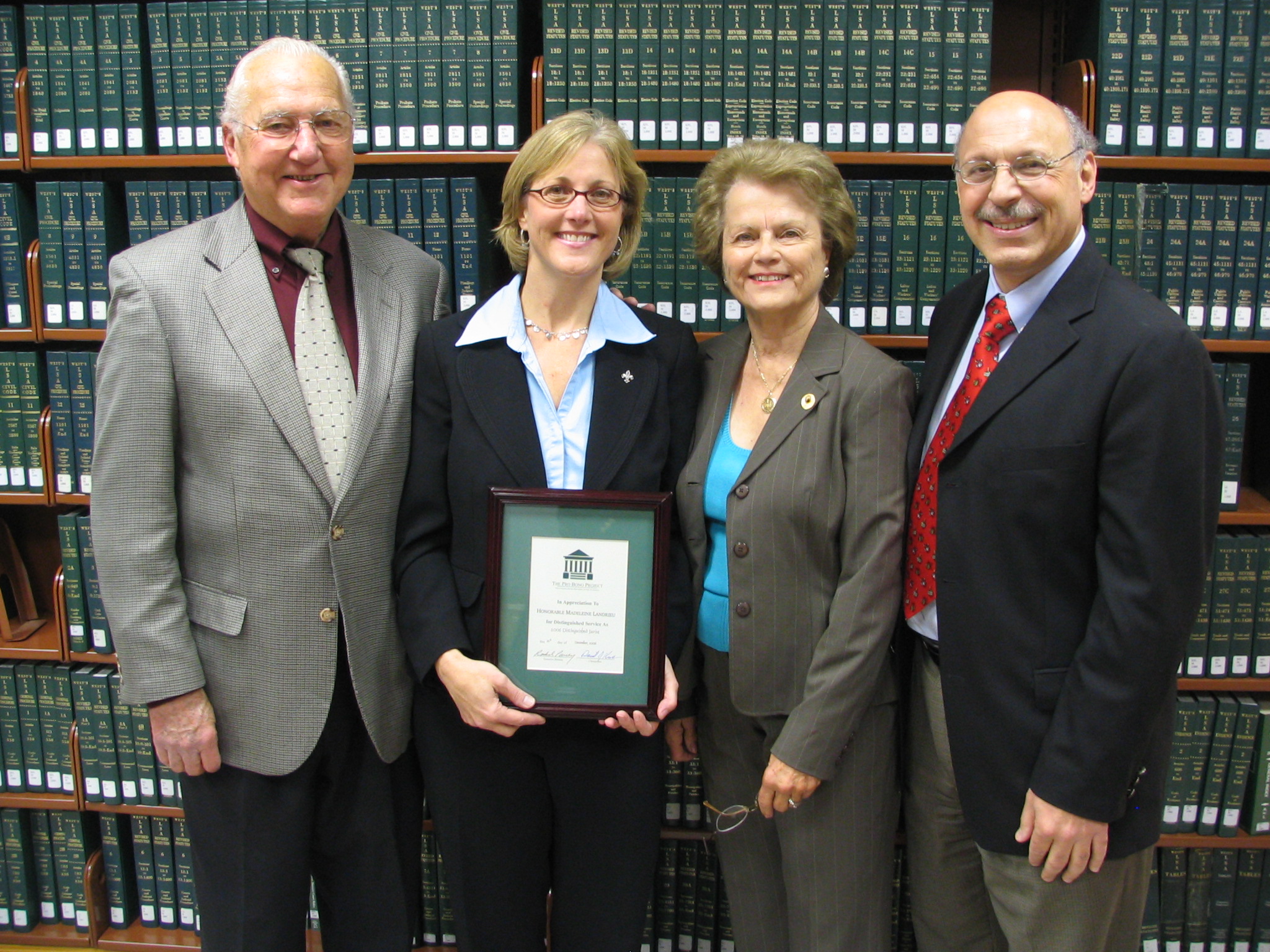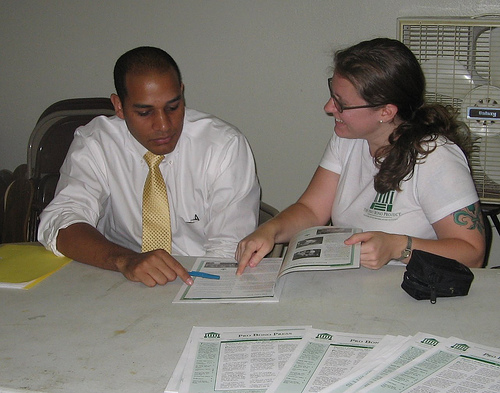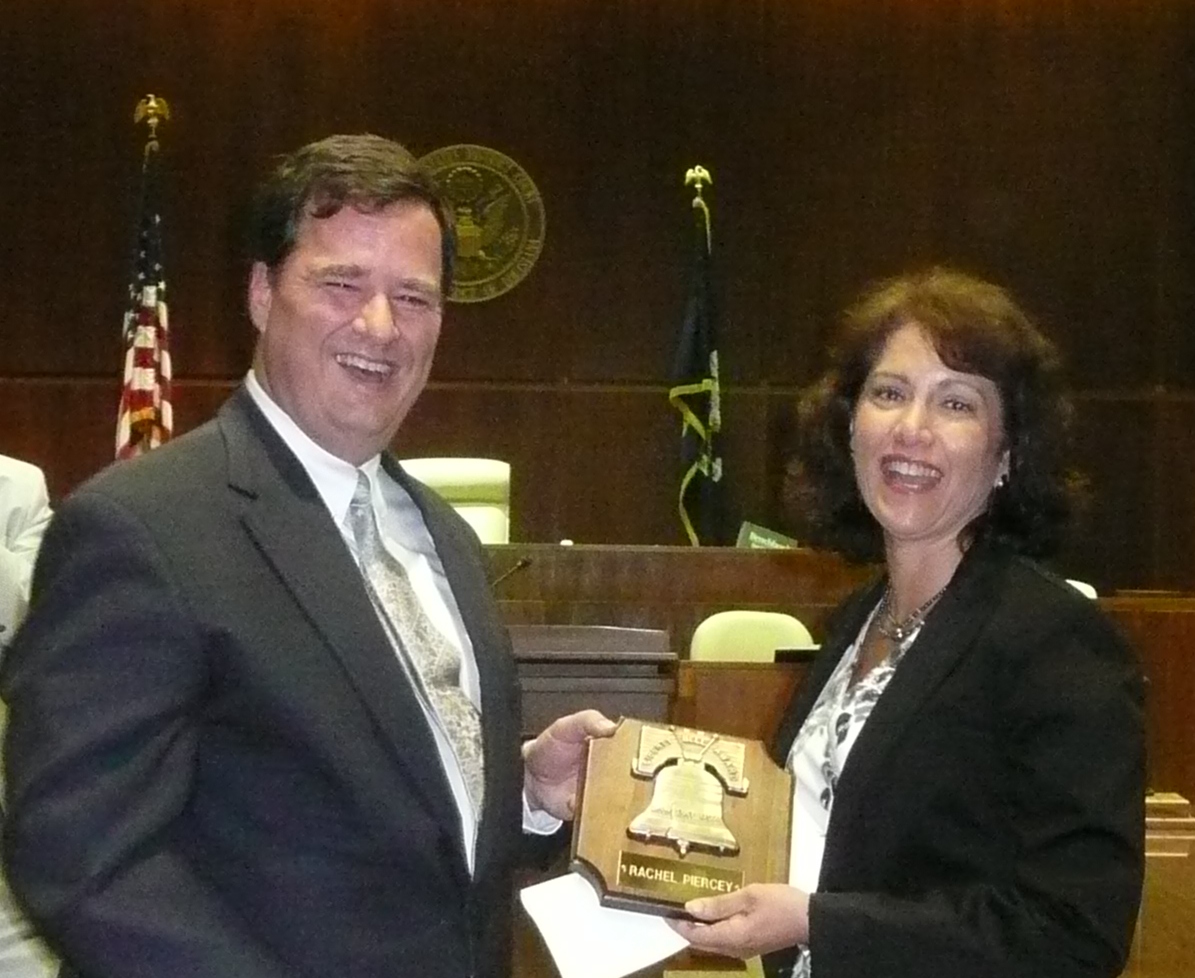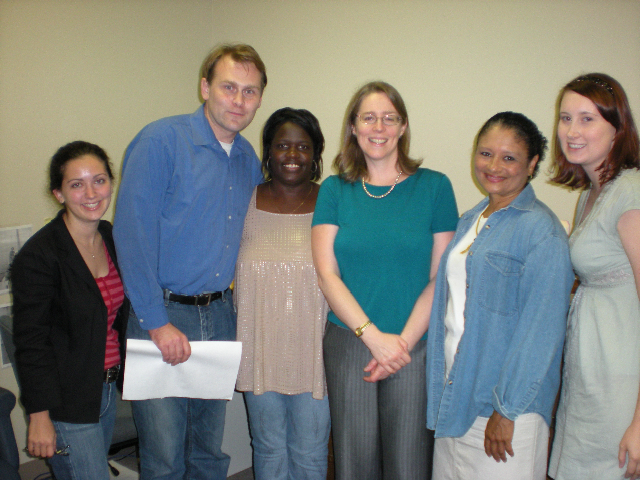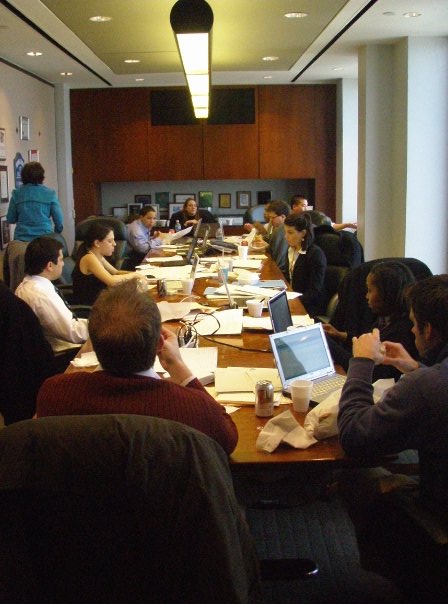It was August 29, 2005 when the winds howled, the rain came and panic ensued – a lady named Katrina blew through like a woman scorned. When it was over, the City of New Orleans was underwater and news headlines around the world told the story of ‘the perfect storm,’ which had once been predicted only in ‘what if’ scenarios. In its wake, it exposed the many tiny cracks in the façade of our charming city in very ugly ways. But in true Mardi Gras fashion, the parade must roll … and so the recovery and rebirth began.
In the aftermath, The Pro Bono Project (The Project), like most of the non-profits in the City, was heavily affected by this ‘perfect storm.’ Staff, clients and volunteer attorneys were spread far and wide across the United States. The court system in the city was in a state of suspension, as were most businesses and governmental entities, save the Mayor’s office and the Federal officials that poured in to survey the damage and put a number on the cost to rebuild.
In spite of this, within days of the disaster, The Project’s Executive Director Rachel Piercey, began to receive calls from the ABA’s Center for Pro Bono, as well as individual law firms and law schools across the country with offers of help and support.
At the time, Rachel was not even sure how they could help and what the needs would be. First and foremost, she had to find her staff, the Board and her volunteers to see whether she could even service the clients that she was sure would be among the most affected by the disaster. Finding The Project’s clients was another matter altogether. Life for all had surely changed dramatically in the 24 hours of Katrina.
Download and listen to the Story Corps conversation between then Board Chair, David Krebs and Executive Director, Rachel Piercey. It was recorded in March 2015 and recounts their memory of Katrina's aftermath for The Project.
First Responders
Little did she know that in the following weeks these ‘early responders’ would come to The Project’s rescue, as the legal issues would increase exponentially in a number of areas that had been only occasionally on the radar for The Project. Most notably among these were Successions and Labor/Wage claims.
Family law had always been a large part of The Project but this caseload expanded dramatically under the stress of the disaster. Divorce rates rose increasing the number of custody cases and other family law matters backing up the court system.
While much has been made over the obvious plight of the City and the Gulf Coast – the behind the scenes story of the legal issues confronting area residents has rarely been told. The non-profit pro bono providers like The Project were often the ones to bear the burden of the thousands of low-income residents in desperate need of legal services, and who now had even fewer resources, and bigger problems, than before.
To help facilitate recovery, the Louisiana Legislature and Louisiana Supreme Court created special provisions around succession law and out of state attorneys, respectively.
The Legislature passed the small succession affidavit law, which simplified the succession process for successions with real estate whose value was less than $75,000. This law also reduced filing costs and allowed successions to move forward even when there were missing heirs. A second law, passed in response to Katrina, allowed one co-owner to manage a succession property for the purpose of repairs after a federal declaration of disaster or emergency. Road Home had required all co-owners to sign the documents to receive the grant money, which prevented many from getting the grant.
The LA Supreme Court issued the temporary Emergency Pro Bono Civil Legal Assistance rule, which enabled lawyers in good standing from across the country to offer pro bono civil legal services, with guidance and oversight from local attorneys. The rule was initially in place from August 2005 to February 2006 and was later extended, as the depth of civil legal issues continued to emerge.
Funding Recovery …
In addition to the overall impact of Katrina on the area – one of the major issues confronting area non-profits was funding. With the city in disarray and residents, and business owners spread across the US – access to the dollars needed to power the non-profits was stalled. In The Project’s case, the organization was just days away from holding its annual fundraiser – the Justice For All Ball, which was scheduled for September 9, 2005 when the storm hit. At this time, the Ball accounted for almost 25% of the organization’s annual budget
In the months that followed, The Project, like most of the non-profit groups in the city, became a key player in the recovery effort by bringing home its residents and helping to pave the way for the many workers needed to physically rebuild the city and the surrounding areas. The Project, as well as many of these groups suddenly found themselves in need of a great deal more funding in order to handle the increased service levels. In The Project’s case, the local and national social service, legal and judicial community came to the organization’s immediate aid helping to source grants and other funds from both the public and private sectors.
Collaboration became the hallmark during this period. Legal organizations, ranging from state and national bar associations to law firms and law schools, offered expertise, volunteers and funding to support The Project. A disaster of such magnitude with so many continuously surfacing civil legal issues had never really occurred before in the United States – an entire city had simply disappeared overnight and now had to be reconstructed. The area became a 'legal laboratory' for those in the legal profession – from law students and young attorneys to seasoned lawyers and judges – they were all breaking new ground in trying to untangle the legal mess that Katrina created.
Landmark Case: Collaboration At Its Finest
Among the many aspects of collaboration that brought The Project to the forefront was in the area of employment/labor law, when Federal Judge Ginger Berrigan granted a U-Visa for a wage claim/immigration case that came to The Project. In collaboration with local and national legal service organizations, the case was the first test of this new visa.
Ultimately, the case was successful and helped to firmly establish and secure prolonged funding, from Oxfam America, for The Project’s Labor/Wage Claim practice area. In 2008, The Project received the prestigious Frances Perkins Public Service Award presented by the ABA’s Labor and Employment Law section for the work done on the U-Visa case and the Labor/Wage Claim Practice.
10 Years Later …
Even though it has been 10 years since Katrina blew through New Orleans and the Gulf Coast – the civil legal issues created continue to surface and The Project, along with other legal service providers are still dealing with succession, real estate, employment/labor, consumer, family and juvenile law cases. The collaborative efforts from volunteers across the country continue, with law students and young lawyers coming regularly to experience the law hands-on in a manner that can only be done in the legal laboratory, which Katrina provided.
The need for pro bono legal services is continuing to grow, as funding from traditional sources continues to decrease. In the 10 years since Katrina, The Project estimates that it has shepherded more than 15,000 cases through the civil court system, providing more than 150,000 volunteer hours at an equivalent value of $26.25 million in legal and supplemental services for clients.
Even though The Project is a New Orleans-based organization, funding is no longer just a matter of local contributions. The area has often served as model for other cities and towns in terms of pro bono. When it comes to the legal implications of disasters, The Project has set the bar quite high in terms of leveraging resources from around the country. As a result, The Project has been at the forefront in furthering the national conversation about pro bono and the financial commitment necessary beyond home boundaries to make certain the door is open to all in accessing our civil court systems.
Out-of-State Law Schools, Law Firms & Others Participation
Our Katrina Honor Roll acknowledges the work of the many out-of-town law schools, law firms, legal organizations and businesses that participated in Katrina Recovery for The Project, and is by no means a complete list. Many of the law schools continue to send law students during summer, winter and spring breaks to intern at The Project. They are hosted and supported by local New Orleans law firms while The Project’s staff oversees their work.
Out-of-state law firms no longer are protected by the Louisiana Supreme Court waiver that was put in place following Katrina to allow them to actually practice pro bono civil law in Louisiana. However, this has not stopped out-of-state firms from continuing to provide volunteers to do research, prepare documents and other legal services, which are then reviewed by The Project’s legal staff and local volunteer attorneys, who actually do the filing, have direct contact with clients and make court appearances. The background work by out of state firms has saved countless hours and has freed up staff and volunteer attorneys to work on the daily cases that continue to come to The Project.
Please see our Katrina Honor Roll of our out-of-state volunteers.
An Additional Retrospective
Please see the Digital Hurricane Memory Bank for a look at how volunteers helped to rebuild New Orleans.
The Roy Rosenzweig Center for History and New Media (CHNM) at George Mason University and the University of New Orleans organized the Hurricane Digital Memory Bank (HDMB) in 2005 in partnership with many national and Gulf Coast area organizations and individuals. HDMB was awarded the Award of Merit for Leadership in History, and is the largest free public archive of Katrina and Rita with over 25,000 items in the collection.
